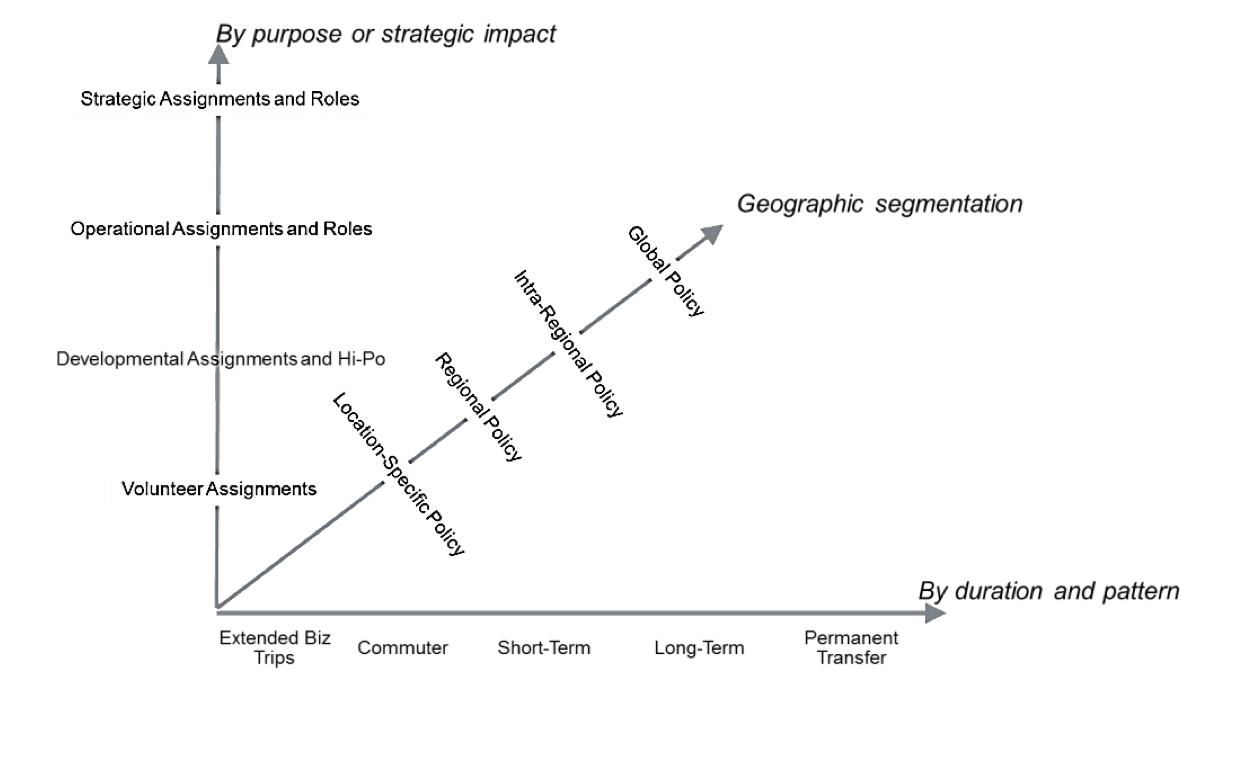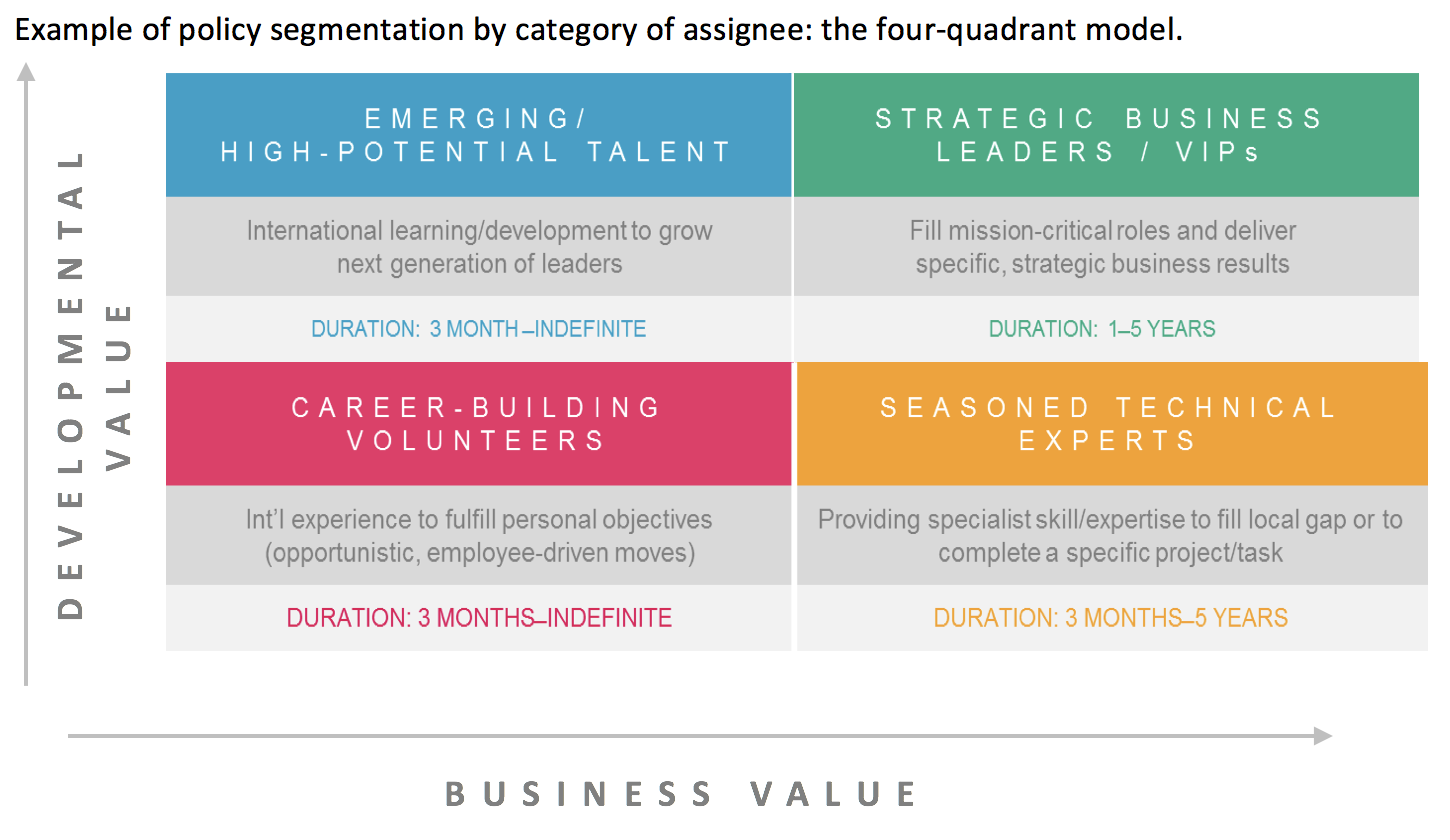Why does it matter?
The expatriate mobility landscape is fast evolving and companies find it increasingly difficult to have only one policy covering all international assignments. More and more, employers are segmenting their expatriation policy, not just by assignment duration (long-term versus short-term) but also by expatriate assignment purpose (strategic assignment versus developmental moves or moves requested by the employees themselves.)
Policy segmentation is a way to:
- Address the limitations of the one-size-fits-all types of policies
- Reconcile the cost control versus international expansion dilemma in a context of budget constraint by shifting budget from less essential moves to assignment that are critical to the business
- Present business cases / options to management to understand the cost and business implications of sending expatriates
- Manage effectively exceptions into well-defined framework and process as opposed to one-to-one ad-hoc deals
- Reconcile talent management and reward / expatriate management
How Mercer can help
Based on the output from mobility stakeholders’ interviews, benchmarking analysis and assignee surveys, and taking into consideration the company’s business priorities, Mercer will provide recommendations regarding the segmentation of assignment policies, to achieve better alignment between the mobility programs and the business/talent needs of the organization.
Mercer will analyze the company’s mobility segmentation needs along three dimensions to determine the optimal number of policies required, bearing in mind the administrative implications:
- By assignment duration and pattern
- By purpose or strategic impact
- Geographic segmentation

Click on the image to view it in a larger size.
Mercer will prepare and present a document with the analysis and recommendations as well as help design decision trees to navigate the different assignment options.

Click on the image to view it in a larger size.